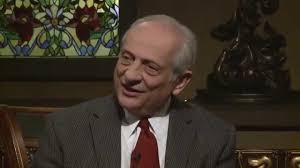(parenthetical notes and remarks mine)
message:
these past weeks and days, i feel a barrage of messages from the lord regarding forgiveness and theocentric thinking-feeling-acting.
the latest and so far, the most central but simplest actually, was this PM. fr rudy (as far as i could hear his name) of ermita church said:
one day, in our moral theology class, the professor asked us to take out 1/4 sheet of paper. he said it would only take 2 minutes and the rating would only be either a 100 or a zero!
the question was: "what was the commandment of love?"
the following day, the prof came with the results. he said, the papers on my right hand got it right and those on my left didn't.
the wrong answer was: "love one another" (john 14:17) period.
the correct answer was: "love one another as i have loved you" (john 14:12).
this is the gospel reading of today. (i just supplied the verses, realizing upon re-examination that both are biblical, but the correct answer is more complete.)
the point, said the prof: loving one another (anthropocentric) rests on a very UNSTABLE / shaky foundation, i.e., HUMAN LOVE. while, divine love is reliable and valid (using psychometric technical terms), i.e., UNCONDITIONAL.
application:
i just added in my mind: "unconditional" doesn't mean setting aside the demands of justice, like setting boundaries and ensuring that sin is not repeated, as much as possible (avoidance of near occasions of sin)!
so, i go back to my "soul-searching" post-dubai quest for MEANING and PURPOSE (one of the five pillars of positive psychology / education!!!) after i was met with a socio-emotional tsunami that crescendoed to an overwhelming proportion upon return!
 |
| c/o aristarchus of samos (+c. 230BC), copernicus (15th c) |
my central insight at that time was: "the sun is the center of the universe" (this famous phrase would be recited by a gifted child in one of the milk ads!). this is the HELEOCENTRIC theory (by polish dominican 3rd order & canon lawyer-mathematician-economist-physician nicolaus copernicus, 1543 cf: wikipedia) vs the debunked GEOCENTRIC theory.
 |
| plato & aristotle: geocentrists |
the sun = god, the planets = fellow humans. we look to god in the midst of turmoil and disappointment with human frailty.
 |
| nicolaus copernicus |
oh, today, i also ready on the t-shirt of people i met on the road along UN ave, aside from "love god" !!!, "the glory of man is not in the falling, but in the ever rising from the falling" (or something to that effect; this was a constant refrain by our late methods of teaching teacher sis edel, fmm in the novitiate!!!)
confirmation:
in the commentary of fr xene sanchez, svd (our regent at christ the king mission seminary college department in ~AY 1980-81, now a biblical scholar in congo), he concludes:
"jesus told those he has chosen to bear fruit. the love that 'tends towards the OTHERS' pushes us to be SENSITIVE TO THE NEEDS of our brothers and sisters. christ's love is DEMANDING which entails great SACRIFICES like F O R G I V I N G as HE (theocentric) forgave those who wronged him, even those who B E T R A Y E D him.
if this great commandment were put into practice there would have been no more conflicts, no more war."



















